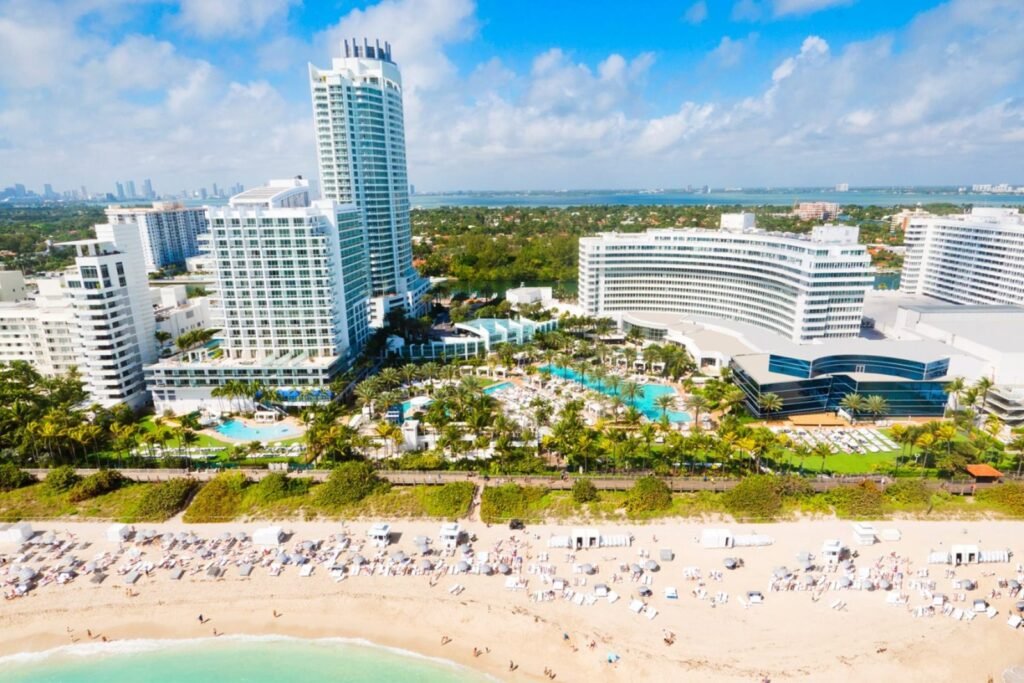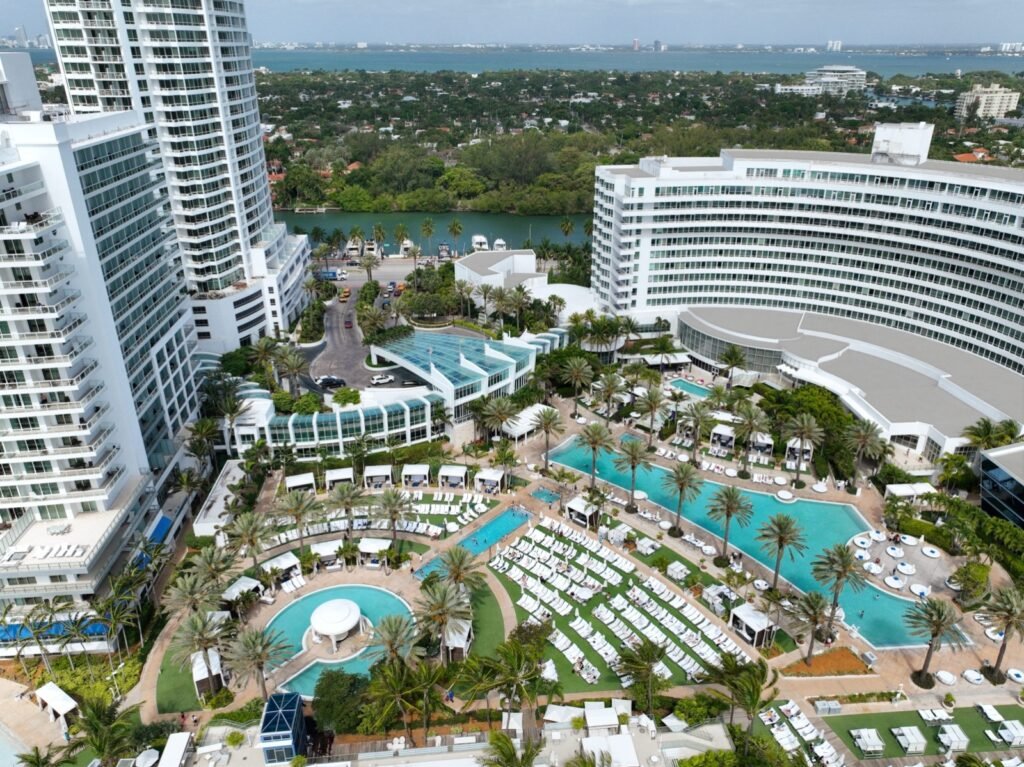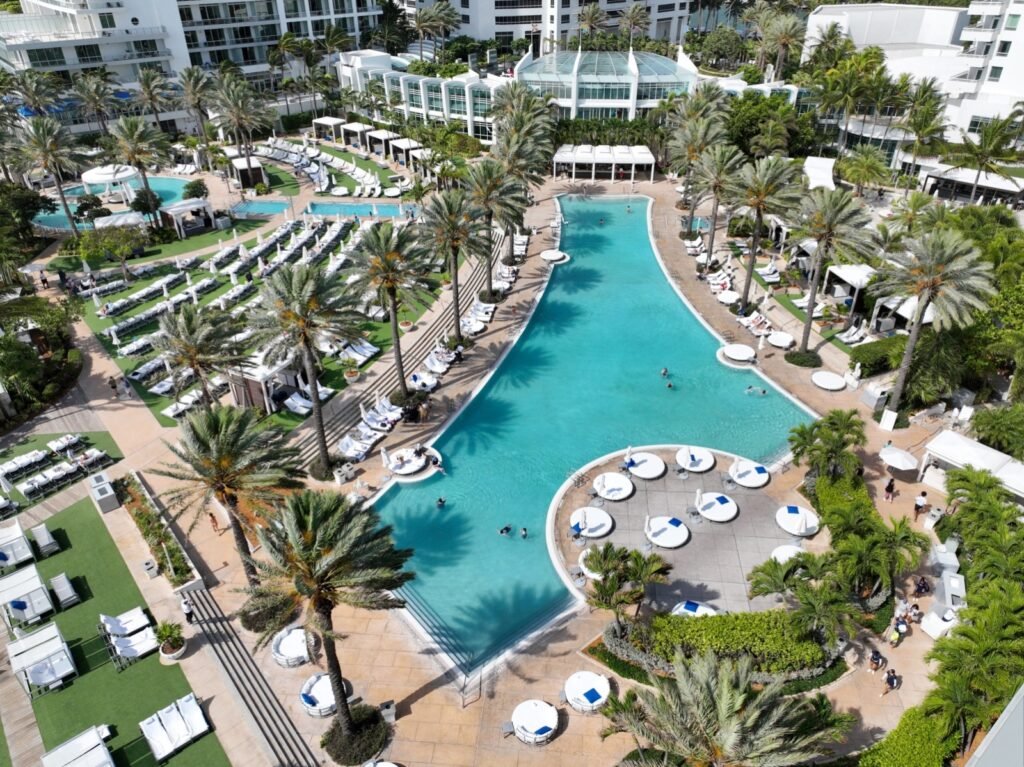|
Getting your Trinity Audio player ready... |
Tabla de Contenido/ Table of Contents
- 1 The DELEON CASINO controversy in Miami-Dade and the Battle of Local vs. Outside Interests
- 2 The Evolution of Gambling in Miami-Dade: A Historical Context
- 3 DELEON CASINO: A Project with National Implications
- 4 Benefits and Risks of Casino Development in Miami-Dade
- 5 Miami-Dade: A Future in the Style of Dubai or Las Vegas?
- 6 Key Players: A Game of Influences
- 7 Conclusion: Who Wins and Who Loses in This Transformation?
The DELEON CASINO controversy in Miami-Dade and the Battle of Local vs. Outside Interests
The expansion of gambling in Miami-Dade and Florida is generating a profound economic, political, and social impact. The arrival of external companies like Mile High Gaming & Entertainment with ambitious projects such as DELEON CASINO, the first of its kind in Miami Beach, raises serious questions about who truly benefits from this transformation. Meanwhile, local players like Jeffrey Soffer, owner of the Fontainebleau Miami Beach, have faced years of regulatory hurdles, highlighting the complexity behind the approval of such projects.
The Evolution of Gambling in Miami-Dade: A Historical Context
The development of casinos in Miami-Dade is not a recent phenomenon. For years, local entrepreneurs have tried to establish entertainment complexes with gambling facilities that could rival the successful models of Las Vegas and Dubai. However, regulatory barriers, political complexities, and tribal interests have limited the expansion of the sector.
The Fontainebleau and the Struggle for Casino Rights
Jeffrey Soffer, owner of the iconic Fontainebleau Miami Beach, has been one of the most vocal advocates for developing casinos at landmark properties. Soffer has repeatedly proposed entertainment projects featuring integrated casinos but has faced multiple rejections at both state and local levels.



Key Questions:
- Why have projects by local entrepreneurs like Soffer been rejected for years?
- What changed that now allows an external player like Mile High Gaming & Entertainment to gain approval?
- Are external economic interests being prioritized over local investment?
These questions highlight the ongoing tensions between Miami-Dade entrepreneurs and political decisions shaping the county’s future.
DELEON CASINO: A Project with National Implications
DELEON CASINO, developed by Mile High Gaming & Entertainment, has been announced as the first legal casino in Miami Beach. This Denver, Colorado-based company has experience operating casinos in states like Colorado and Mississippi. However, its entry into Miami Beach has sparked controversy.
Why an Outside Company and Not Local Players?
The project has ignited a debate about economic justice and equitable development. While local entrepreneurs have faced regulatory roadblocks for years, an external company has managed to unlock access to this competitive market.
Key Determining Factors:
- Political Lobbying and State Regulations
Political influence and state-level decisions have been crucial in the project’s approval. Government support for external companies raises doubts about transparency in the process. - Exclusivity Agreements with the Seminole Tribe
The 2021 pact led by Governor Ron DeSantis with the Seminole Tribe granted them exclusivity over certain types of gambling. However, DELEON CASINO appears to have found a loophole in these restrictions. - Barriers for Local Entrepreneurs
Figures like Jeffrey Soffer and Donald Trump have expressed frustration at the barriers local developers face while a Denver-based company secures approval.
Benefits and Risks of Casino Development in Miami-Dade
Economic Benefits
The expansion of gambling in Miami-Dade has the potential to transform the county into a global luxury entertainment destination, with clear economic advantages:
- Job Creation: Direct and indirect jobs in construction, hospitality, services, and entertainment.
- Increased Tax Revenues: Tax income generated by casinos could be allocated to infrastructure, education, and public services.
- Tourism Attraction: A world-class casino in Miami Beach will attract high-spending visitors, directly competing with destinations like Las Vegas and Dubai.
Social and Economic Risks
However, the benefits come with significant risks:
- Gambling Addiction and Social Problems: Greater access to gambling can lead to addiction and financial hardship, particularly in vulnerable communities.
- Gentrification and Displacement: The arrival of luxury casinos can raise living costs, displacing residents and small local businesses.
- Economic Dependency: A gambling-based economy is susceptible to tourism fluctuations and regulatory changes.
- Transparency and Corruption: The approval of DELEON CASINO raises concerns about potential backroom deals and political favoritism.
Miami-Dade: A Future in the Style of Dubai or Las Vegas?
Comparisons to Las Vegas and Dubai
Both Las Vegas and Dubai are successful examples of cities that have transformed entertainment and luxury into economic powerhouses.
- Las Vegas: Its economy relies heavily on gambling and tourism, with robust infrastructure combining casinos, hotels, and live shows.
- Dubai: While it does not feature casinos, it has diversified its economy with futuristic projects, luxury attractions, and global events.
Miami-Dade aspires to a hybrid model that blends Dubai’s glamour with Las Vegas’ gambling industry. However, this vision must balance economic prosperity with community well-being and fairness.
Key Players: A Game of Influences
1. Jeffrey Soffer and the Fontainebleau
The Fontainebleau remains a symbol of Miami Beach and an example of how local entrepreneurs have been excluded from gambling development.
2. Ron DeSantis and the Seminole Tribe
The exclusivity agreement with the Seminole Tribe has favored major operators while limiting competition.
3. Mile High Gaming & Entertainment
As the key developer of DELEON CASINO, this Denver-based company represents the influence of external players on Miami-Dade’s economic development.
Conclusion: Who Wins and Who Loses in This Transformation?
The case of DELEON CASINO reflects the tensions Miami-Dade faces as it seeks to become a global destination. While gambling expansion may generate jobs, tax revenues, and a tourism boost, it also raises critical challenges:
- Why are external companies being prioritized over local players like Jeffrey Soffer?
- How can equitable development be ensured so that the entire community benefits?
- What impact will this model have on the social and economic fabric of the county?
If Miami-Dade truly aims to emulate the success of Dubai and Las Vegas, it must do so with transparency, economic justice, and social responsibility, ensuring that the benefits of development are shared by all, not just a privileged few.
Head over to our homepage for the latest updates from South Florida and beyond:










